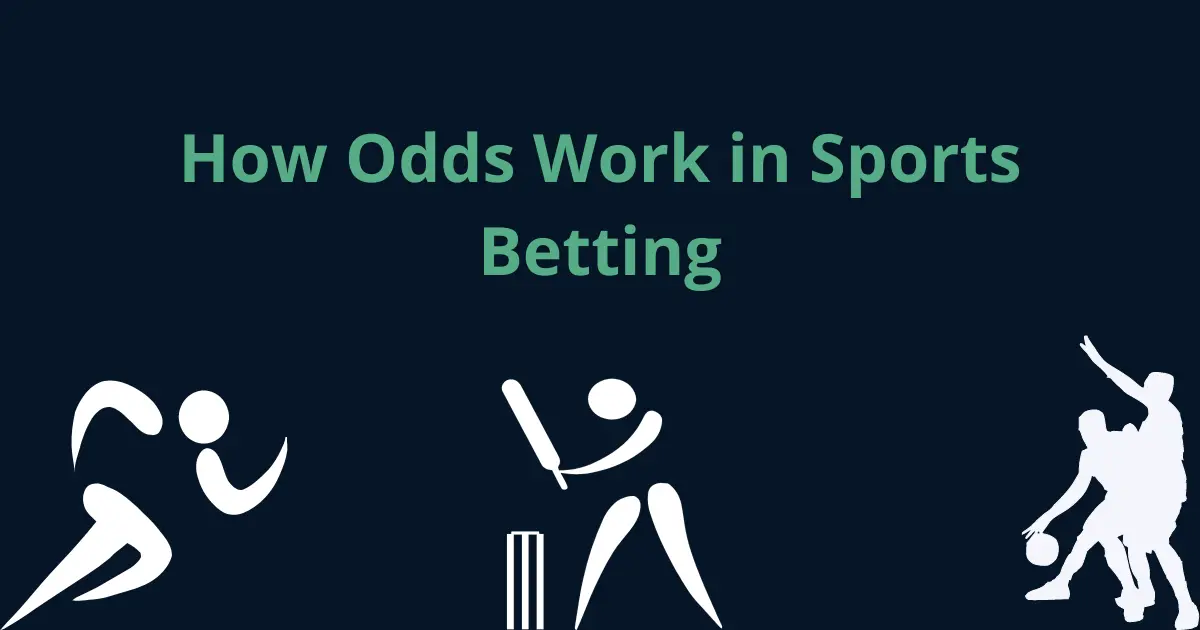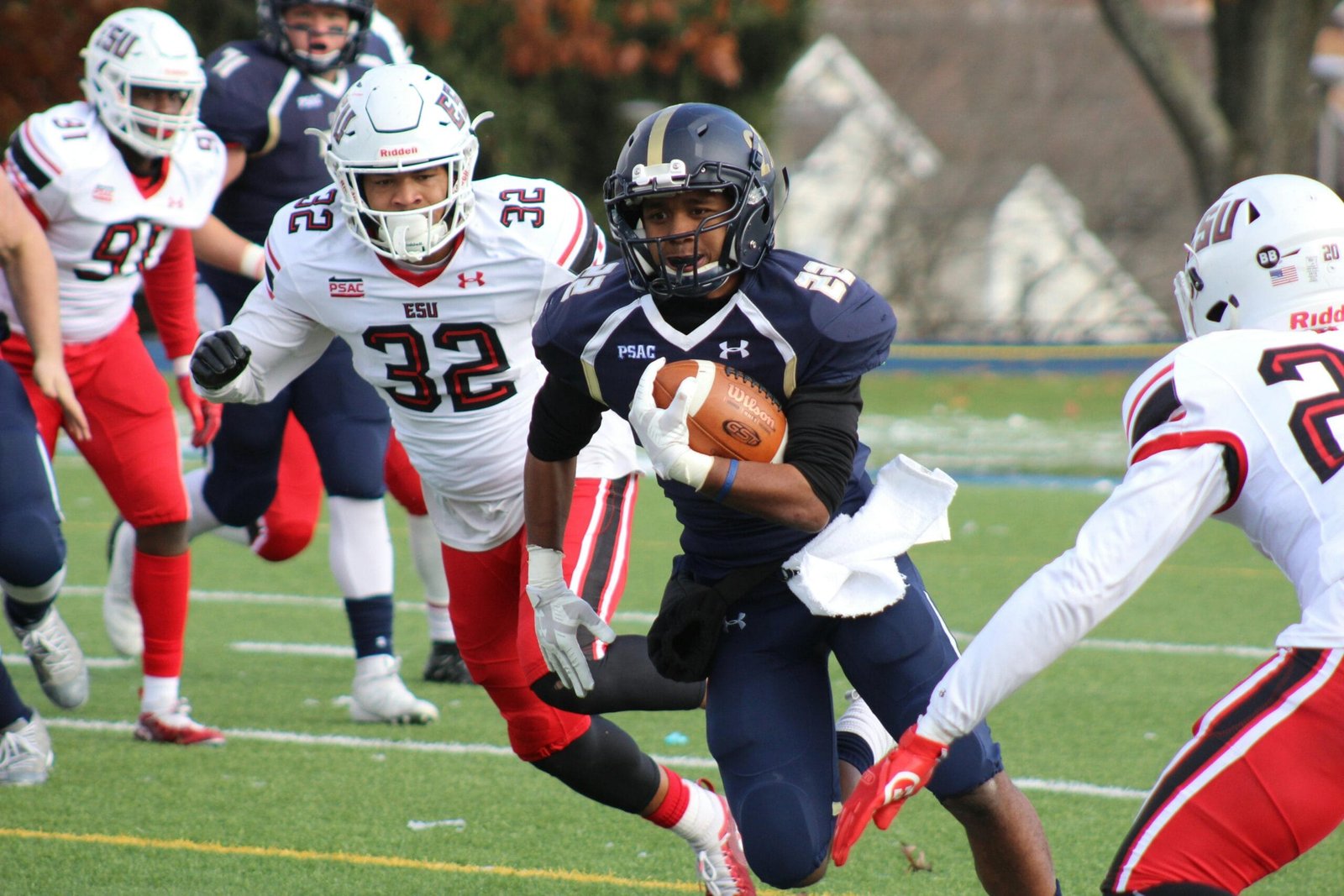Sports betting is an exciting and potentially lucrative hobby, but to make informed bets, you need to understand how odds work. Betting odds not only determine how much you can win on a bet, but they also indicate the probability of a particular outcome occurring.
In this article, we will explore the various types of betting odds, how to read and interpret them, how to calculate potential winnings, and strategies for using odds to your advantage. Let’s get to it.
Basics of Betting Odds
Sport betting odds are a fundamental part of sports betting, representing the likelihood of an event happening and the potential payout from a bet. They are typically expressed in three formats: American odds, fractional odds, and decimal odds.
Understanding these formats is crucial for any bettor. Each format has its unique way of expressing the same information, and knowing how to read them can significantly impact your betting strategy and potential returns.
Types of Betting Odds Explained
American Odds
American odds, also known as moneyline odds, are most popular in the United States. They are expressed as either a positive or negative number. Positive odds indicate how much profit you would make on a $100 bet, while negative odds indicate how much you need to bet to win $100.
For example, if the odds are +150, a $100 bet would yield $150 in profit. Conversely, if the odds are -150, you would need to bet $150 to win $100.
American odds can be confusing at first, but once you get the hang of them, they offer a clear picture of potential risk and reward. Positive odds, such as +200, suggest an underdog situation where a $100 bet could result in a $200 profit.
Negative odds, such as -200, indicate a favorite, where you need to bet $200 to win $100. Understanding these dynamics can help you assess the risk versus reward for each bet you consider.
Fractional Odds
Fractional odds are commonly used in the UK and are represented as fractions, such as 5/1 or 3/2. The first number indicates how much you will win for every unit bet, while the second number represents the amount of the bet.
For example, if you bet £10 at odds of 5/1, you would win £50 plus your original £10 stake, totaling £60. Fractional odds are prevalent in horse racing and are often preferred by seasoned bettors for their straightforward representation of potential returns.
In the case of odds of 4/1 mean that for every £1 you bet, you stand to win £4, plus your initial stake. This format makes it easy to calculate potential payouts and compare different betting opportunities.
Decimal Odds
Decimal odds are widely used in Europe and Australia and are the easiest to understand. They are expressed as a decimal number, which represents the total payout, including the original stake, per unit bet. For example, if the odds are 2.50, a $10 bet would return $25 (including the initial $10 stake).
Decimal odds simplify the process of calculating potential winnings. Simply multiply the stake by the decimal number to get the total payout. For instance, a bet of $20 at odds of 3.00 would return $60. This format is user-friendly and makes it easy to compare the odds from different sportsbooks quickly.
Calculating Potential Winnings
Calculating potential winnings from different types of odds involves straightforward arithmetic if you know how to use sport betting odds calculator. For decimal odds, multiply the stake by the decimal number. For example, a $20 bet at 2.75 odds will return $55.
For American odds:
Positive
Winnings =stake x positive odds100
Negative
Winnings = stake x 100Negative Odds
For fractional odds, multiply the stake by the fraction. For example, a £20 bet at 4/1 odds will return £80 plus the original £20 stake. Understanding these calculations can help you quickly assess the potential returns on your bets and make more informed decisions.
External Factors Influencing Betting Odds
Market Movements
Betting markets are dynamic, with odds fluctuating based on the volume of bets placed on different outcomes. If a significant number of bets are placed on one team, bookmakers might adjust the odds to balance their risk. This shift can create opportunities for bettors to find more favorable odds.
For example, if a popular team attracts a lot of bets, the odds might shorten, making the potential payout smaller. Conversely, the odds for the opposing team might lengthen, offering a potentially higher return. Understanding these market movements can help you time your bets for maximum advantage.
2. Real -Time Events
Events such as player injuries, weather conditions, and team strategies can significantly impact betting odds. For instance, if a star player is injured just before a game, the odds may shift dramatically. Staying informed about such events can give bettors an edge.
Monitoring news sources, following team updates, and being aware of any changes that might affect the game can help you anticipate odds movements and place your bets before the market adjusts. This proactive approach can enhance your chances of securing better odds and higher potential returns.
Strategies for Using Betting Odds
Finding the Best Odds
Shopping around for the best odds is a fundamental strategy in sports betting. Different sportsbooks may offer slightly different odds for the same event, so comparing them can increase potential profits. Using odds comparison websites can help streamline this process.
For instance, if one sportsbook offers odds of 2.10 on a team to win and another offers 2.20, placing your bet with the latter increases your potential payout. Over time, consistently finding the best odds can significantly boost your overall returns.
Value Betting
Value betting involves identifying bets where the probability of a specific outcome is higher than the implied probability suggested by the odds. This strategy requires thorough research and a deep understanding of the sport. Over time, consistently finding value bets can lead to profitability.
For example, if you believe a team’s actual chances of winning are 50%, but the implied probability based on the odds is 40%, this represents a value bet. By focusing on these opportunities, you can increase your long-term profitability, even if you don’t win every individual bet.
Betting Systems and Bankroll Management
Implementing a betting system and effective bankroll management is crucial for long-term success. Betting systems like the Kelly Criterion help determine the optimal amount to wager based on the perceived value of the bet.
Additionally, managing your bankroll by only betting a small percentage on each wager can help mitigate losses and sustain your betting activity over the long term. For instance, the Kelly Criterion suggests betting a fraction of your bankroll based on the edge you have over the bookmaker.
This method helps balance potential profits against the risk of losing your entire bankroll. By sticking to a disciplined approach, you can weather losing streaks and maintain a sustainable betting strategy.
Common Mistakes and How to Avoid Them
Misinterpreting Odds
One common mistake is misinterpreting betting odds, particularly for beginners. Ensuring you understand how to read and calculate payouts for different types of odds is essential. Practice with small bets or simulations can help build confidence.
Misinterpretation can lead to poor betting decisions and unnecessary losses. Take the time to familiarize yourself with different odds formats and practice calculating potential returns before placing larger bets.
Emotional Betting
Betting based on emotion rather than analysis is a significant pitfall. It’s important to remain objective and rely on data and research rather than personal bias. Keeping detailed records of your bets can help identify patterns and improve decision-making.
Emotional betting often leads to chasing losses or placing bets based on gut feelings rather than rational analysis. By maintaining a clear head and focusing on evidence-based strategies, you can improve your betting outcomes and avoid common pitfalls.
Conclusion
Understanding how odds work in sports betting is crucial for making informed bets and improving your chances of success. By mastering the different types of odds, learning how to calculate implied probability and potential winnings, and employing effective live betting tactics and strategies, you can enhance your betting experience and increase your potential for profit.
Remember to stay disciplined, manage your bankroll wisely, and continuously educate yourself about the sports you bet on.
Frequently Asked Questions About How Betting Odds Work
How do betting odds vary between different sports?
Betting odds can vary significantly between sports due to factors like the format of the competition, the number of outcomes, and the level of public interest. For example, odds in individual sports like tennis may differ from team sports like football.
Can odds change after I place my bet?
Once you place your bet, the odds are locked in, and any subsequent changes will not affect your bet. However, the odds for future bets on the same event may change based on new information or market movements.
What should I do if I don’t understand the odds format offered by a sportsbook?
Most sportsbooks offer options to display odds in different formats (American, fractional, decimal). If you don’t understand the format, you can usually switch to a format you’re comfortable with or use an odds converter tool to translate the odds into a more familiar format.
By understanding the nuances of betting odds and implementing the strategies discussed, you can improve your betting outcomes and enjoy a more rewarding sports betting experience.




